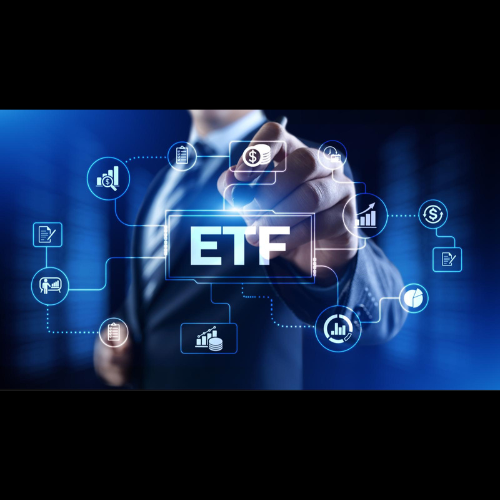Navigating the landscape of artificial intelligence (AI) investments can present a formidable challenge, given the sector’s complexity and rapid evolution. An effective strategy for investors aiming to harness the burgeoning potential of AI is to consider thematic exchange-traded funds (ETFs). These ETFs provide focused exposure to a curated selection of companies at the forefront of AI innovation, allowing investors to participate in the sector’s growth without needing to select individual stocks.
Christopher Gannatti, the esteemed global head of research at WisdomTree, underscores the transformative impact of AI, particularly highlighted by the advent of technologies like ChatGPT. Gannatti emphasizes that AI is poised to revolutionize our daily lives, work, and investment strategies, heralding a new era of technological advancement.
To aid investors in identifying the premier AI ETFs for the year 2024, we have meticulously analyzed and ranked six thematic ETFs. Our evaluation criteria encompassed a variety of factors, including total assets under management, expense ratios, and the specific investment strategies and indexes that these ETFs track.
Premier AI ETFs to Watch
Global X Robotics & Artificial Intelligence ETF (BOTZ): With $2.4 billion in assets and an expense ratio of 0.69%, BOTZ stands out for its comprehensive coverage of the AI and robotics sectors.
iShares Robotics and Artificial Intelligence Multisector ETF (IRBO): Boasting an attractive expense ratio of 0.47% and assets totaling $596.1 million, IRBO offers a diversified portfolio spanning multiple sectors within AI and robotics.
Global X Artificial Intelligence & Technology ETF (AIQ): AIQ, with $1.1 billion in assets and a 0.68% expense ratio, focuses on AI and tech companies leading innovation.
First Trust Nasdaq Artificial Intelligence and Robotics ETF (ROBT): With an expense ratio of 0.65% and $490.6 million in assets, ROBT provides targeted exposure to the AI and robotics sectors.
WisdomTree Artificial Intelligence and Innovation Fund (WTAI): WTAI, featuring a competitive expense ratio of 0.45% and $217 million in assets, is designed for investors seeking innovation in AI.
Roundhill Generative AI & Technology ETF (CHAT): With a focus on generative AI technology, CHAT has an expense ratio of 0.75% and $78.5 million in assets, catering to niche interests within AI.
Methodological Rigor in Selection
Our selection process began by excluding ETFs that lacked a clear focus on AI, such as broad technology, automation, and robotics ETFs without a pronounced AI emphasis. We also omitted ETFs utilizing AI for investment decision-making, rather than investing directly in AI-centric companies. Moreover, ETFs designed for short-term trading strategies or with high expense ratios and volatility were excluded to prioritize options suitable for long-term investment strategies.
The Path Forward with AI Investments
Investing in AI ETFs offers a strategic pathway to diversify and capitalize on the growth of AI technologies. Among the listed ETFs, the iShares Robotics and Artificial Intelligence Multisector ETF (IRBO) emerges as a standout choice, combining a low expense ratio with a broad, equal-weighted index that minimizes concentration risk.
AI, as defined by IBM, encompasses a fusion of computer science and robust datasets to solve problems, akin to imbuing computers with human-like reasoning and learning capabilities. Innovations such as ChatGPT exemplify AI’s potential to revolutionize interactions and problem-solving.
Beyond ETFs, investors can explore direct investments in AI-centric companies, mutual funds with an AI focus, or venture capital opportunities in AI startups. Equity crowdfunding platforms also offer avenues for engaging with early-stage AI projects.
Investment Considerations and the AI Sector’s Future
Choosing to invest in AI ETFs requires careful consideration of one’s risk tolerance, investment objectives, and the inherent sector-specific risks and opportunities. While AI ETFs offer a concentrated glimpse into the future of technology, they also present unique challenges, including potentially higher expense ratios and market volatility.
Investors should exercise due diligence, recognizing that market expectations and the rapid pace of AI advancements can influence investment outcomes. Despite these challenges, the allure of AI’s transformative potential continues to captivate the imagination and investment strategies of those looking to navigate the future of technology and innovation.
by Steve Macalbry
Senior Editor,
BestGrowthStocks.Com
Disclaimer: This article is intended for informational purposes only. It should not be considered financial or investment advice. We do not hold any form of equity in the securities mentioned in this article. Always consult with a certified financial professional before making any financial decisions. Growth stocks carry a high degree of risk, and you could lose your entire investment.





